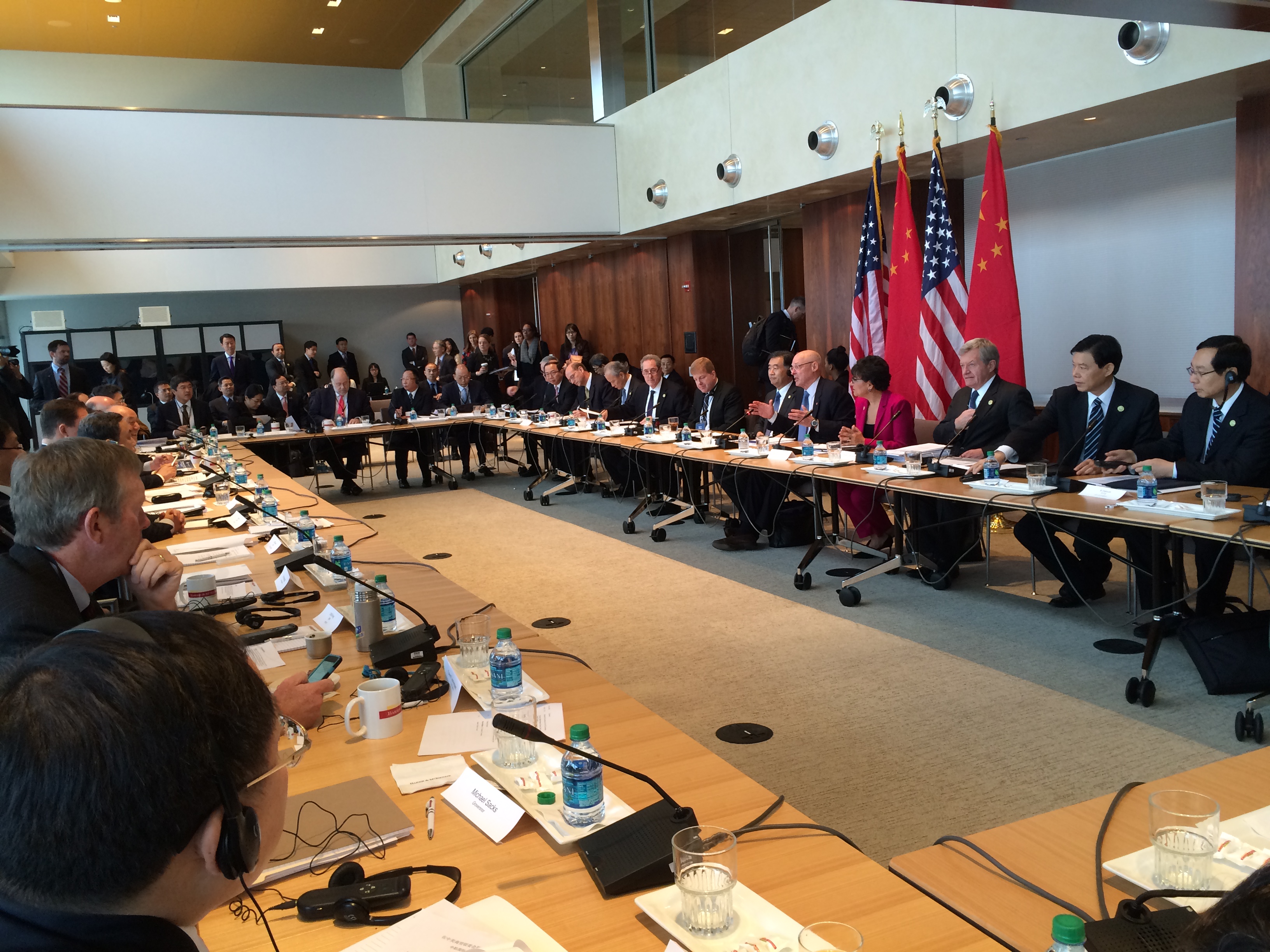As part of the annual US-China Joint Commission on Commerce and Trade meetings in Chicago on December 16-17, the Paulson Institute co-hosted a roundtable discussion with 24 business leaders from the U.S. and China.
During the discussion, hosted at the Chicago offices of Baker & McKenzie, government and business leaders talked about the opportunities and challenges of bilateral investment between the United States and China, including greater market access for U.S. goods and services, protection of intellectual property, ways to promote an efficient and level playing field in both China and the United States, and how to secure best practices in regulatory enforcement, among other issues.
The event began with a discussion about Chinese investment in the United States, moderated by Institute Vice Chairman Evan Feigenbaum. Participants included Pin Ni, the president of Wanxiang America Corp., Du Lijun, Director of the Board of ICON Aircraft, Kevin Kimle, an agricultural markets expert at Iowa State University, and Mitch Roob, Executive Vice President of Keramida Inc, who has worked on attracting Chinese investment to Indiana.
Institute Chairman Hank Paulson then moderated a conversation with Secretary of Commerce Penny Pritzker, Chinese Vice Premier Wang Yang and US Trade Representative Michael Froman. US and Chinese business leaders voiced comments about some of the challenges they face in doing business in each country—from a changing regulatory environment in China to anti-dumping actions in the United States. “All business people want the same thing: they all want predictability, clear channels of communication and a level playing field,” Paulson said, adding with a joke: “I can see that Vice Premier Wang Yang is taking careful notes. I can assure you that he is listening!”
Paulson stressed the importance of the United States and China concluding a Bilateral Investment Treaty, which is now being negotiated. In particular, he pointed out that a strong economic and investment relationship will help the United States and China weather political challenges they may face. “I can’t overemphasize the importance of the BIT,” said Paulson. “We need stakeholders who are supporting the US-China relationship, which has become more complicated. A BIT will give business something to rally around and be for.”




